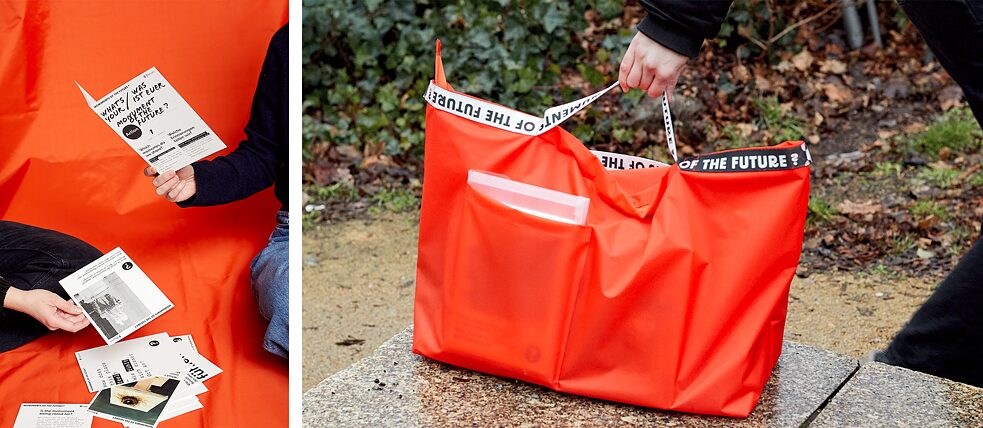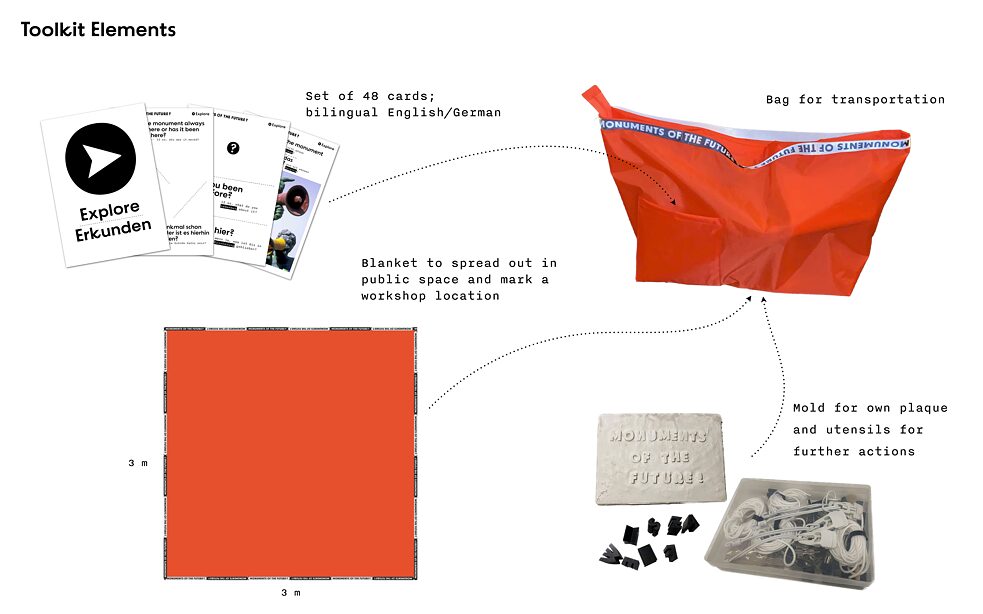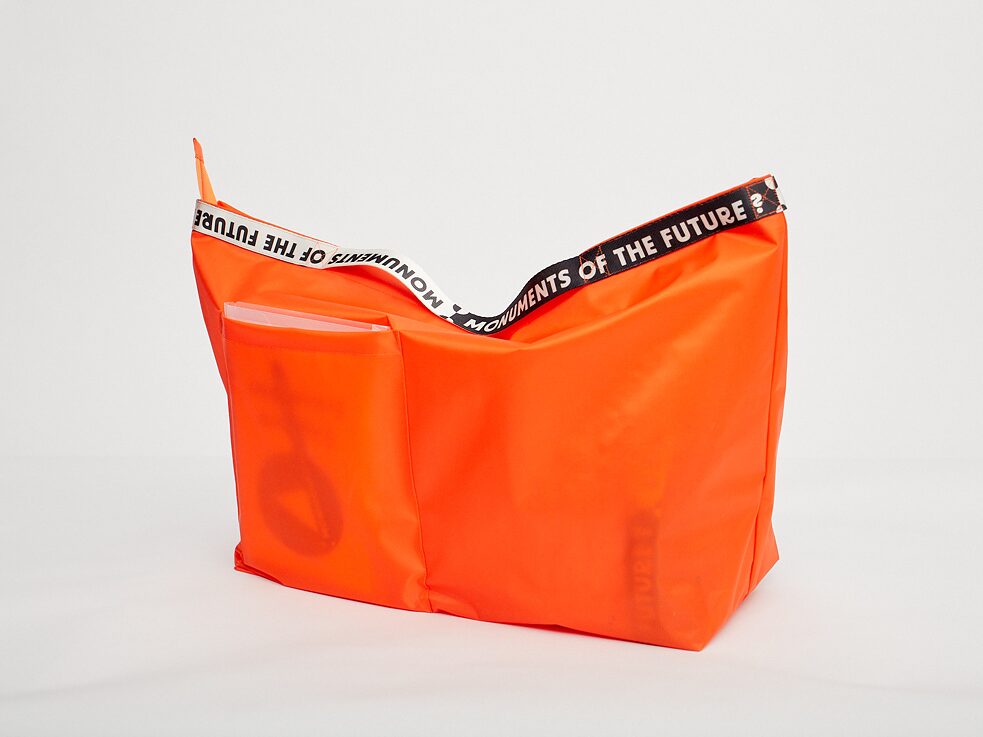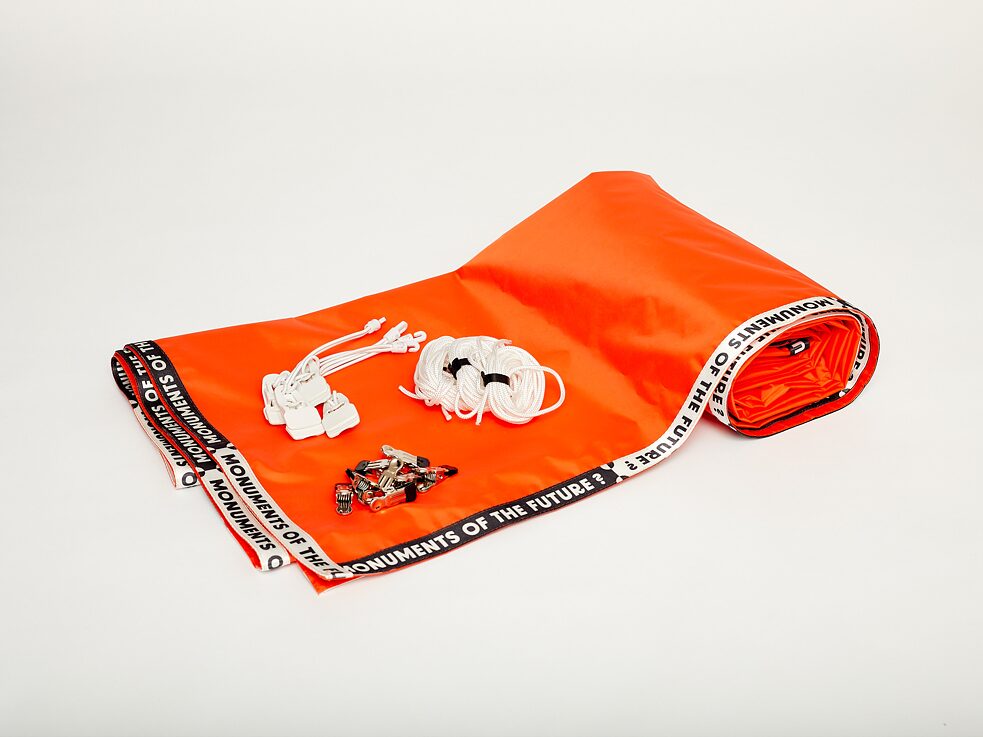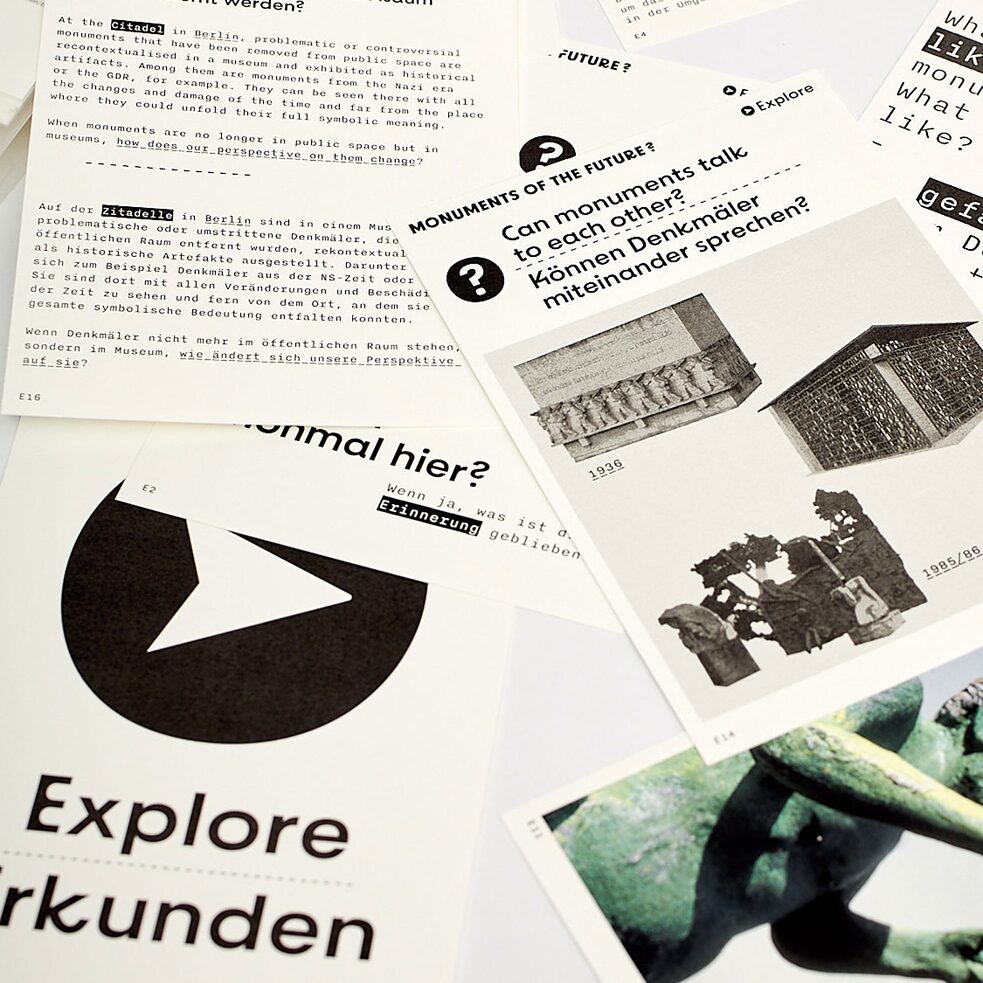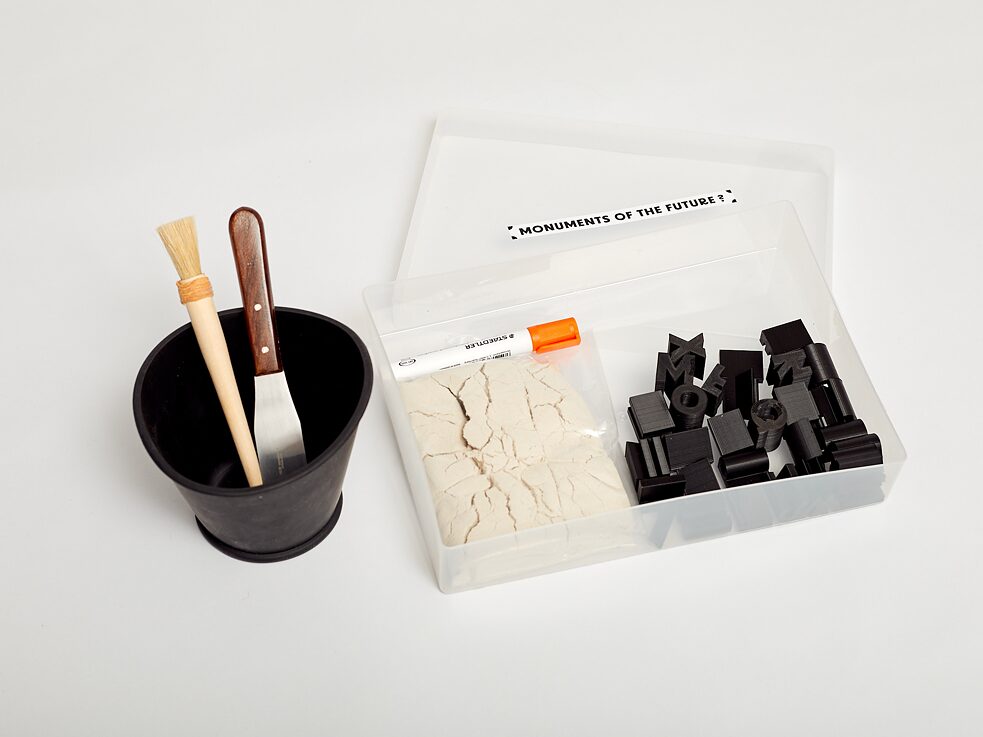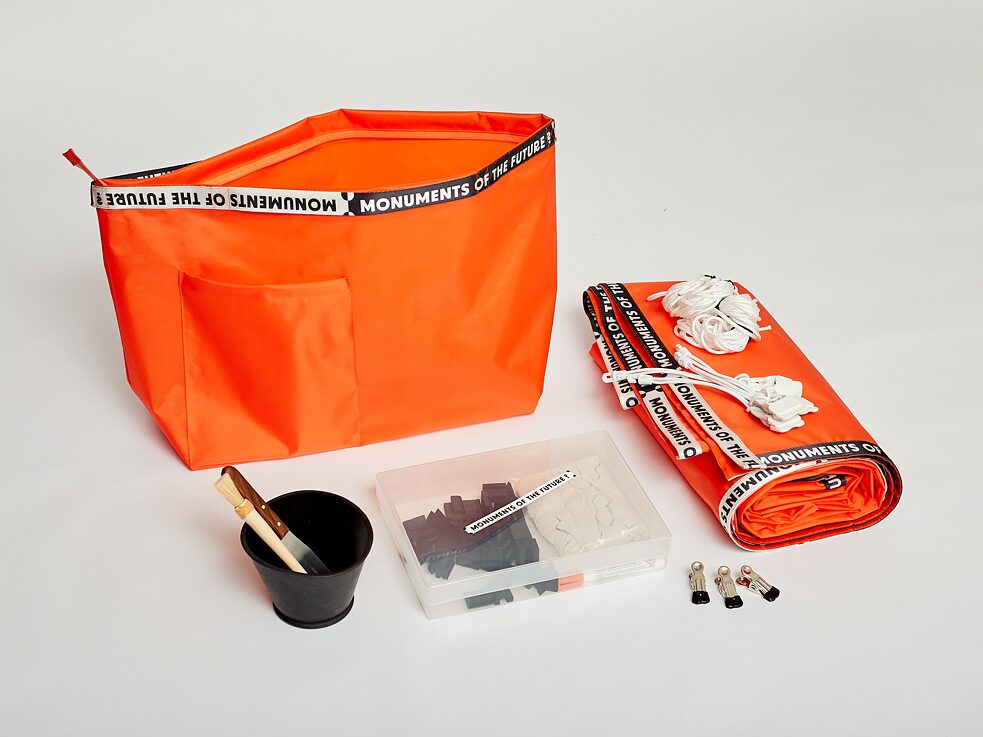Monuments are always under scrutiny: While Confederate monuments in the USA are being removed from public spaces – sometimes by force – activists in Germany are campaigning for the renaming of streets currently dedicated to personalities who were involved in colonial oppression, for example.
New monuments, on the other hand, are to be erected to commemorate people and communities whose social achievements have received little recognition to date. Commemorative culture touches on both political representation and daily life. What is remembered and what remains invisible is a matter of public interest.
Monuments of the Future? explored and discussed the processes involved in the construction, dismantling or updating of monuments, which do not always take place under the eyes of the public. As a result of the project a workshop toolkit – the ‘Monumental Bag’ – was developed that serves partner institutions of the Goethe-Institut as a basis or supplement for conducting their own workshops on monuments and memory culture.
The ‘Monumental Bag’ contains a toolkit that supports young people in prototyping not only a memorial but also the process of creation itself. By enabling its users to observe their environment and approaching it through a variety of media, the ’Monumental Bag’ enables critical reflection on memorial culture as well as the identification of gaps in the participants’ immediate environment.
The ‘Monumental Bag’ workshop is designed to enrich the group with a perspective that focuses on collaborative creative processes and transdisciplinarity, and incorporates issues of historiography and the negotiation of dissent and consensus. By looking at existing monuments, participants engage with history and can add to it, change it, renew it, or determine a new position from their perspective.
Through exercises and assignments, some individual and some group, participants learn to work both independently and cooperatively. Moderation by the respective mediators and teachers from the partner institutions helps to find compromises and overcome creative blockades. Participants pursue their own interests: They may research and analyze, but also draw, design and build.
Please note: We are not currently sending out ‘Monumental Bags,’ but we can inform you as soon as they're available! Please follow this link to submit your contact details:
Order form
The ‘Monumental Bag’ grew out of the project Monuments of the Future? in which students and experts on both sides of the Atlantic question the role of art and design in the debate about public monuments. Looking toward the future, they explored how commemorative cultures are changing as society changes.
Monuments of the Future? is a project of the Goethe-Institut Washington, funded by the German Foreign Office and the German Federal Agency for Civic Education.
